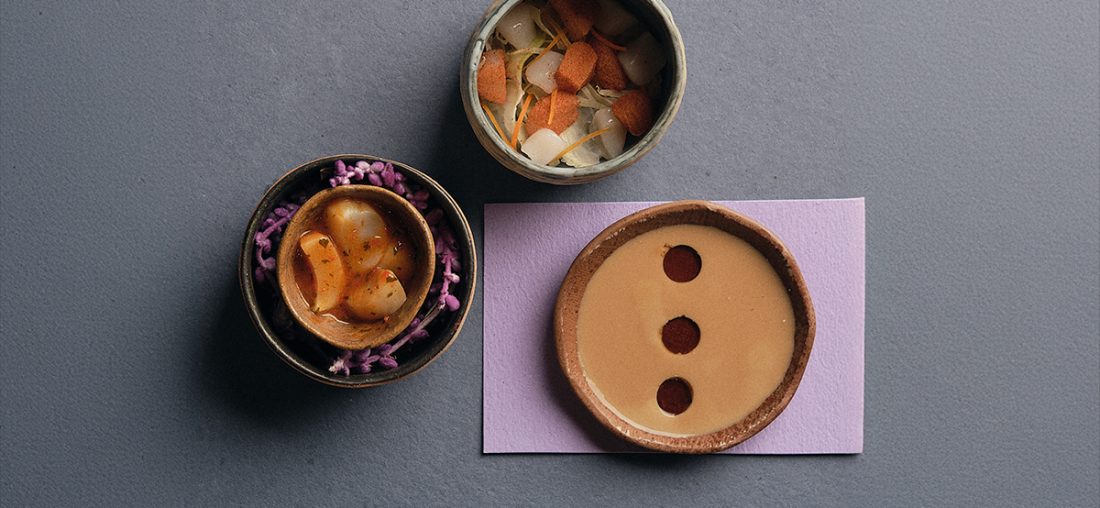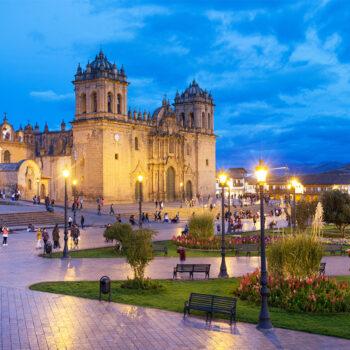
KJOLLE: CULTURAL DIVERSITY REFLECTED IN THE ENVIRONMENT AND AT THE TABLE
Kjolle, by Pía León, ranks 16th on The World’s 50 Best Restaurants list. With a refurbished restaurant, the chef draws from her cultural diversity.

Kjolle, by Pía León, ranks 16th on The World’s 50 Best Restaurants list. With a refurbished restaurant, the chef draws from her cultural diversity.
Escribe Catherine Contreras (IG @caty.contrerasr) / Photos By Camila Novoa (IG @camilanovoaok)
Pía León celebrates Kjolle’s rise to the 16th spot among the World’s 50 Best Restaurants with a revamped space that enhances the culinary experience. Art and architecture, colors and textures, flavors, and meticulous exploration of ingredients come together to tell a unified story.

Kjolle has jumped from 28th to 16th in The World’s 50 Best Restaurants ranking, part of the list since 2022. This year, three Peruvian restaurants remain on the global list (with two more in the 51-100 list). The announcement was made from the Encore Theater, located in Wynn Las Vegas, a luxurious hotel complex, casino, and golf course inaugurated in 2005, occupying 35 hectares—equivalent to four times the size of Parque de la Reserva in Lima, Peru.
Just meters from the famous Las Vegas Strip, the main avenue lined with hotels, malls, casinos, and every imaginable entertainment space in Nevada, Kjolle by Pía León received this recognition shortly after renovating her Lima restaurant, creating a more comfortable and coherent culinary space.
They closed for a very short period and resumed welcoming guests in mid-April. Upon the long-awaited reunion, the curious eye discovers a visually more spacious, renovated Kjolle. It is the first impression. The glass walls subtly delineated a line between the terrace and the main dining room, which is no longer there. Today, it is an extensive open space unified by a continuous wooden false ceiling projected over what was previously outdoors and covered by an angled awning. In the area for the open kitchen, the bright onyx bar stands out: it has been extended several more meters and appears long and clean, allowing a better view of the harmonious work of each chef, who now has more space. Pía stands there, setting the rhythm for this team dance.
«The change was necessary because the Kjolle of 2018 is not the same as today,» says Pía León, the chef who, in the sixth year of operations, firmly steps onto this renovated stage to deliver a proposal she recognizes is more mature. «Now I have a clearer path: ours is to explore the country and its cultural, landscape, ingredient, and nuance diversity in various ways. I know it, we know it, and to convey that, the space needed to accompany us.»
Following the Mater philosophy of intersecting and drawing from various disciplines for a better understanding of the environment and gastronomy, several specialists were called upon for this evolutionary process of Kjolle. The scene change also involved the Mater space, which moved to the second floor of Casa Túpac, and the entry exhibition. Rafael Freyre updated the architectural space, following the line he initially proposed. Agave’s naturalist design (Ale Mendoza and Bruno Binda) handled the landscaping. The furniture continues to feature pieces of wood and stone from Artesanos Don Bosco. The surroundings are delicately decorated with pieces made from chambira fiber by Ricardo Quispe and an Iskonawa textile by Luz Marita Rodríguez, an artist of traditional Amazonian weaving, prominently displayed on a clean wall. «We have always believed that all objects, what adorns the walls and complements each moment of the experience, are valuable and need to tell the same story,» notes the chef.
In this setting, the proposal also strengthens. Pía León says the menu design invites exploring Kjolle’s colors, «and then the sequence of dishes is a story we always want to sound cohesive, to converse with everything outside.»Upon reopening, the chef shared a delightful experience: one of the initial bites includes razor clams, lobster, and the crispest fresh lettuce heart. Corvina, sea urchin, and scallops make this a menu where marine products are very present, without neglecting red meats (duck and beef) or land products such as mamey, arracacha, lulo, coconut, quince, pitahaya, or rough lemon, as well as tubers like cassava, olluco, and potatoes.
«The sequence of courses involves intertwining different regions,» Pía tells us. And it is more evident now than before. Her ode to tubers, associated with her celebrated tart, now arrives in a small bite to be taken by hand and also includes the presentation of ingredients (amaranth, olluco, potato, cassava) around a oxalis foam, all to be mixed. There is also tucupi, along with crab accompanying the lobster, for example. The celebrated desserts remain untouched: mashua ice cream with pitahaya and arazá and that Theobromas Mater celebration, where cacao, cupuaçu, and macambo shine. This is the essence of our seasonal menu, a celebration of the freshest and most diverse ingredients.
The pairing, led by sommelier Diego Vásquez, offers delicious nectars and extracts or wines, according to the diner’s choice, brilliantly complementing the menu. Don’t hesitate to ask for an extra curiosity; Diego will excitedly present it. The exploration of the territory and its application at the table is one in Kjolle. No particular region takes center stage; instead, they all link together harmoniously. It is as if it were a nation in dialogue, with specific differences that are not hidden (textures, flavors, origins, and processes) but are there together, knowing they all form a scene of biodiversity just as it should be beyond gastronomy as well.
Si es dulcera o le gustan las bebidas novedosas, incluso si la idea es reunir a la familia y comprar comida lista, aquí va una guía para darle un detalle sabroso en su día.
Leer másEl evento organizado por la PUCP y el Basque Culinary Center congregó más de 600 personas entre estudiantes, cocineros, productores y más personas del mundo gastronómico.
Leer másLa postulación de chefs es hasta el 15 de abril. El ganador recibirá 100.000 euros.
Leer más




